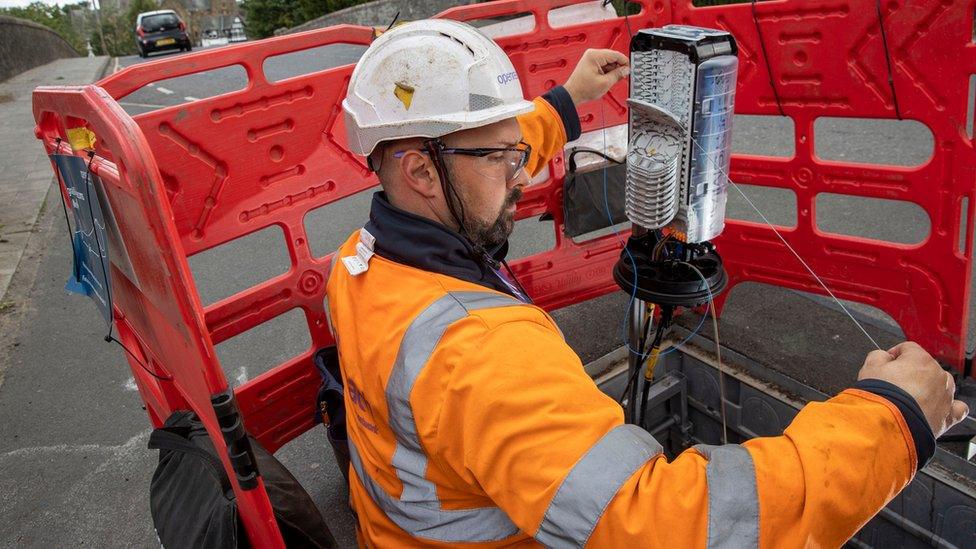Openreach axes connection fees for low-income homes
- Published

Openreach will install broadband for free to UK households on universal credit which have no other earnings.
The company would usually charge ISPs, such as Sky or TalkTalk, for connecting households to broadband.
The firm estimates about one million people could save up to Ā£92, depending on how internet firms pass on the saving.
But some analysts have questioned how big an impact the move will have.
The Good Things Foundation, which works to make sure everyone benefits from digital tech, told the “óĻó“«Ć½ it welcomed Openreach's fee waiver.
"Access to data is a lifeline. Public services like universal credit are already online, and the pandemic has meant more of us are managing our health online through contacting GPs via video call, or making use of the NHS apps," a spokesman said.
Two million households struggle to afford internet access, media regulator Ofcom revealed.
It noted that some ISPs had introduced low-cost tariffs for people on benefits, or improved existing ones. But it said take-up had been low, reaching at most 1% of those in receipt of out-of-work benefits.
It suggested that if the industry did not do more, there would be a strong case for "exploring whether mandatory social tariffs would be necessary to fill the gaps in support, alongside other potential options".
Digital Infrastructure Minister Matt Warman praised the new scheme. "This welcome step will help people struggling with bills access the connectivity they need to thrive in today's digital age," he said.
The government is facing criticism for its decision to end a Ā£20 increase to universal credit introduced during the pandemic.
Limited availability
The "connect the unconnected" offer will apply to households that receive universal credit with zero other earnings, which have not been connected to the Openreach network for the past 90 days.
Mark Jackson, editor-in-chief of broadband news site ISP Review, said the caveats meant the announcement "may only have a limited impact".
He added that smaller ISPs don't have systems in place to identify customers on universal credit
"The big players, like BT do, but smaller ISPs may have to weigh up whether the restricted availability makes it worthwhile to even attempt to do that."
He said it was "a positive development" but it was yet to be seen how the savings would be passed on.
ISPs can choose to implement the savings to customers in a number of ways, Openreach said, either by cutting costs up front or over the course of a contract.
An Openreach spokesperson told the “óĻó“«Ć½ while it could not insist that the savings were given to customers, "clearly the right thing to do would be to pass it on".
Related topics
- Published18 March 2021
- Published2 September 2021